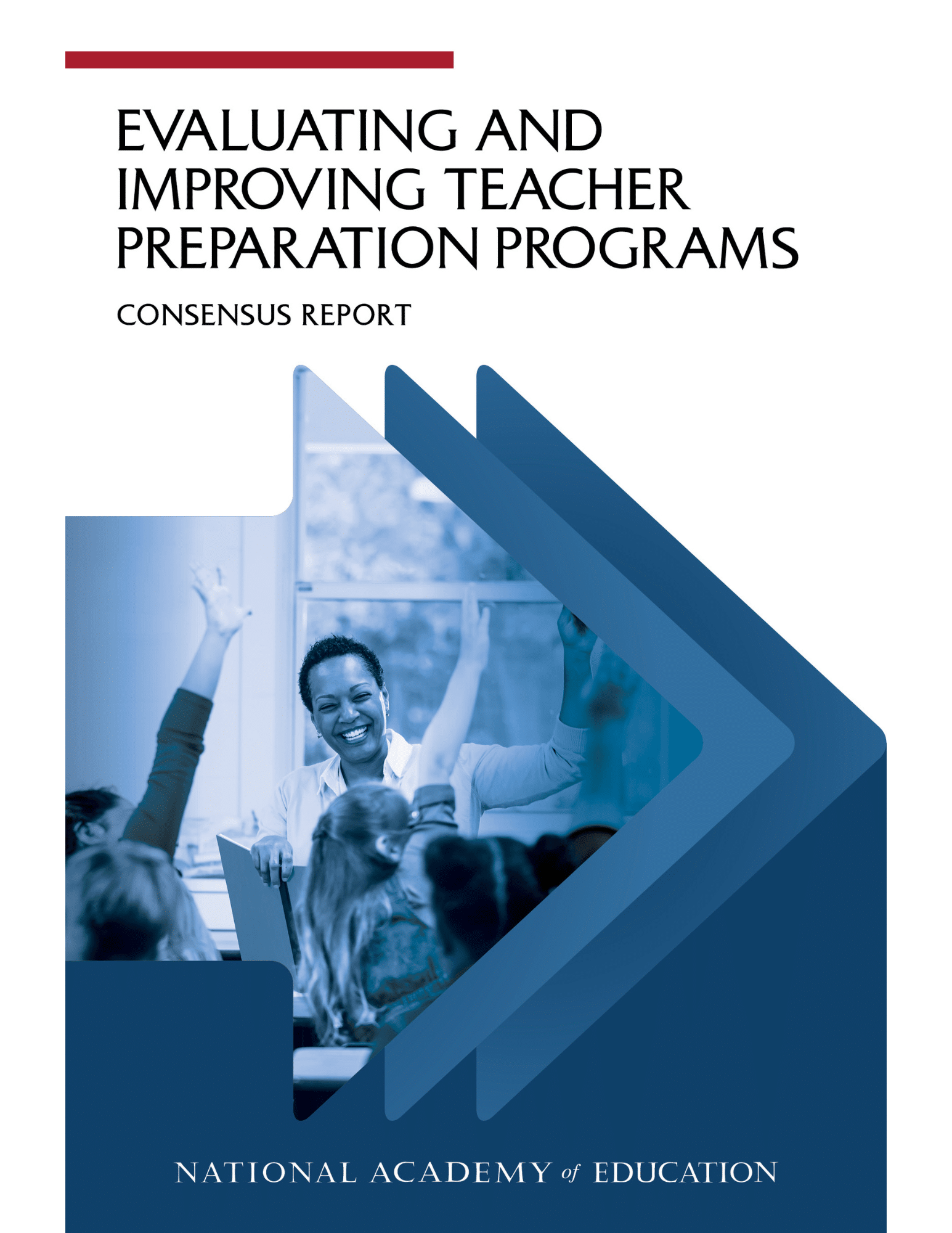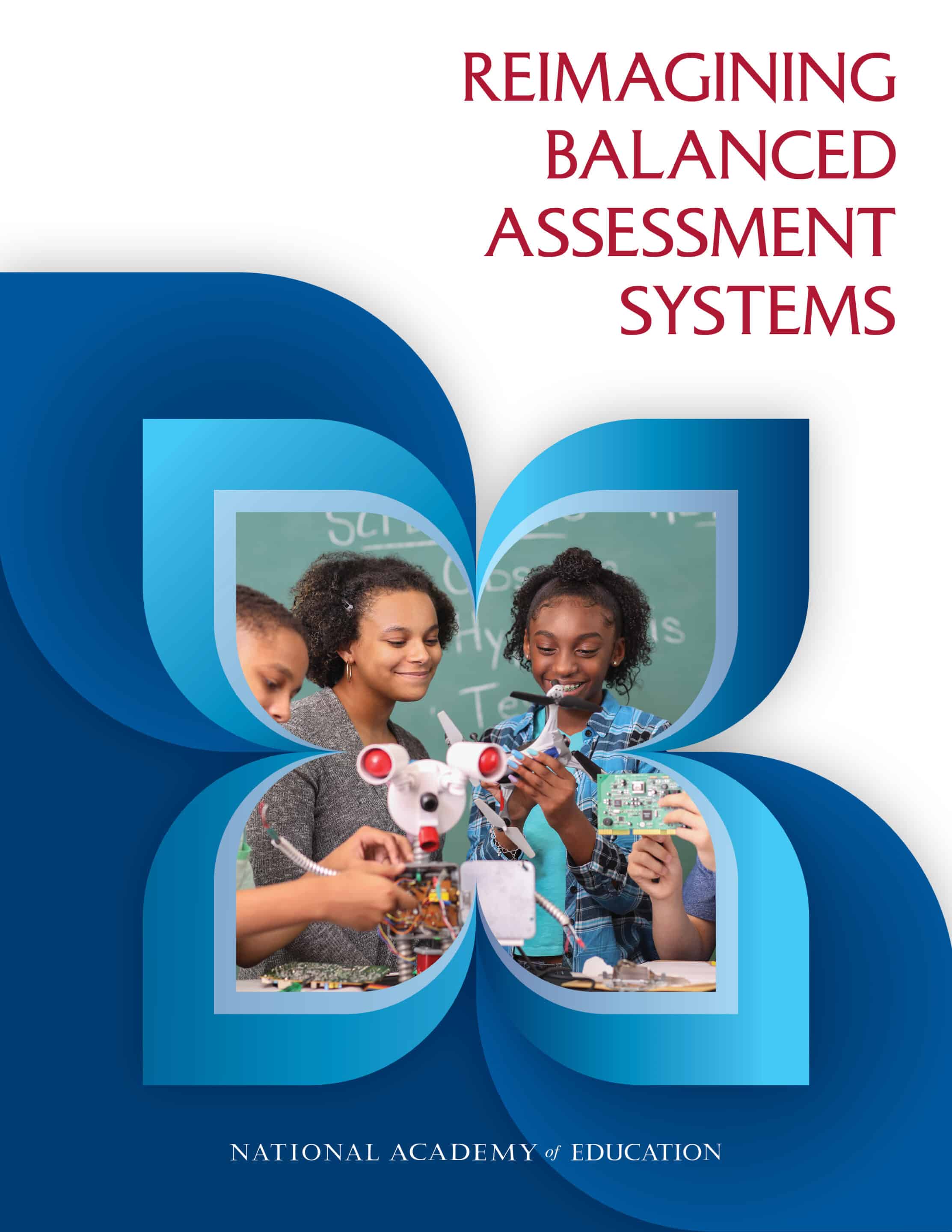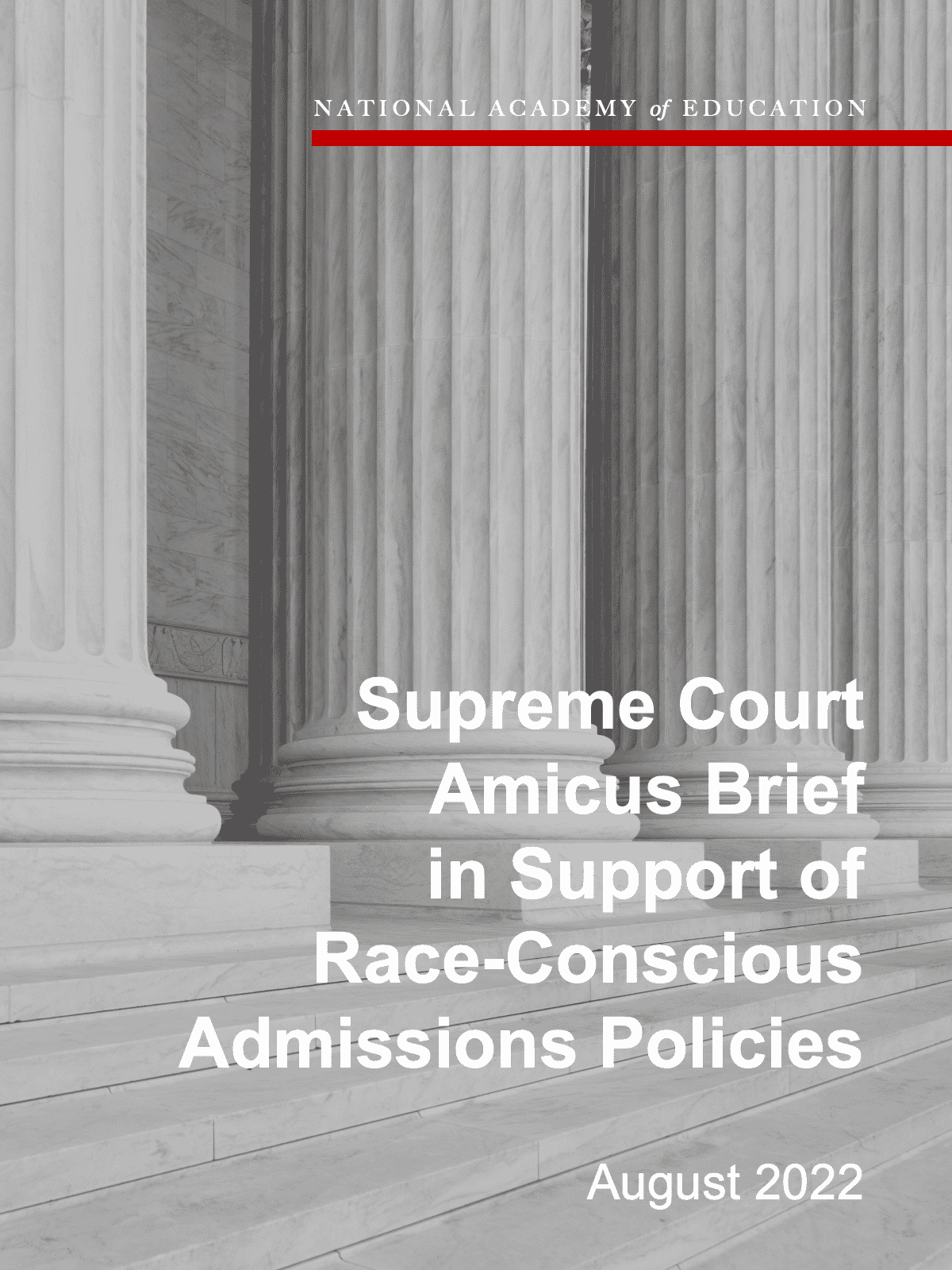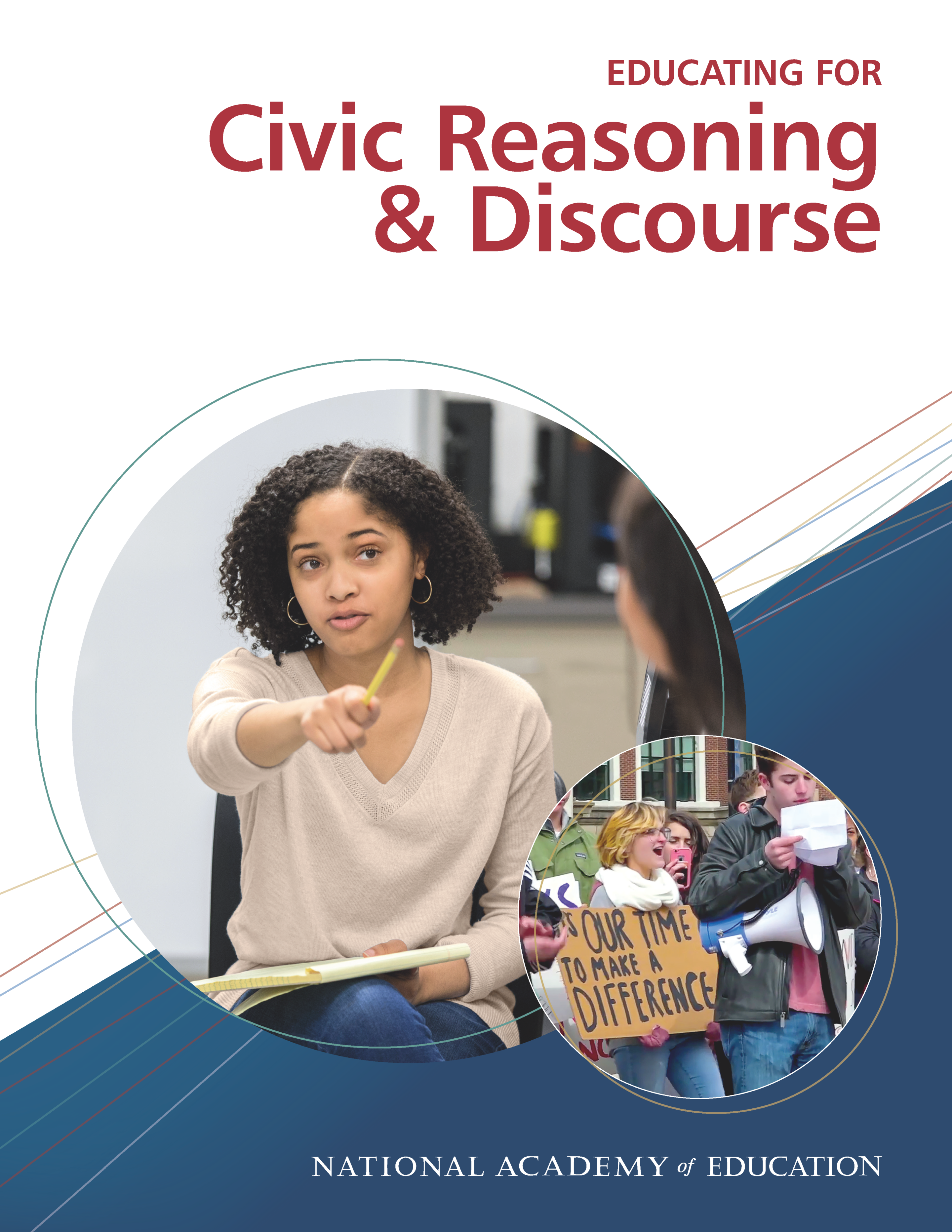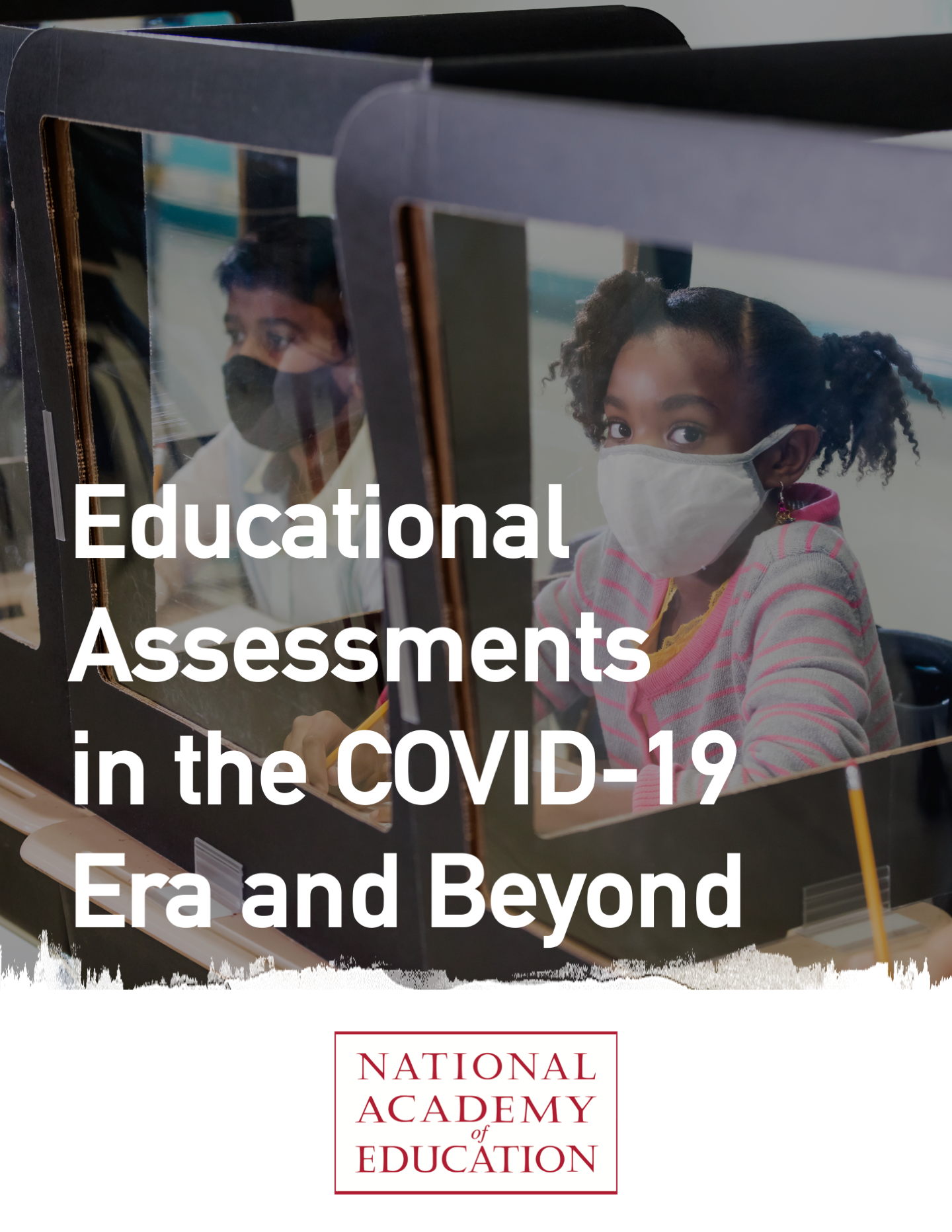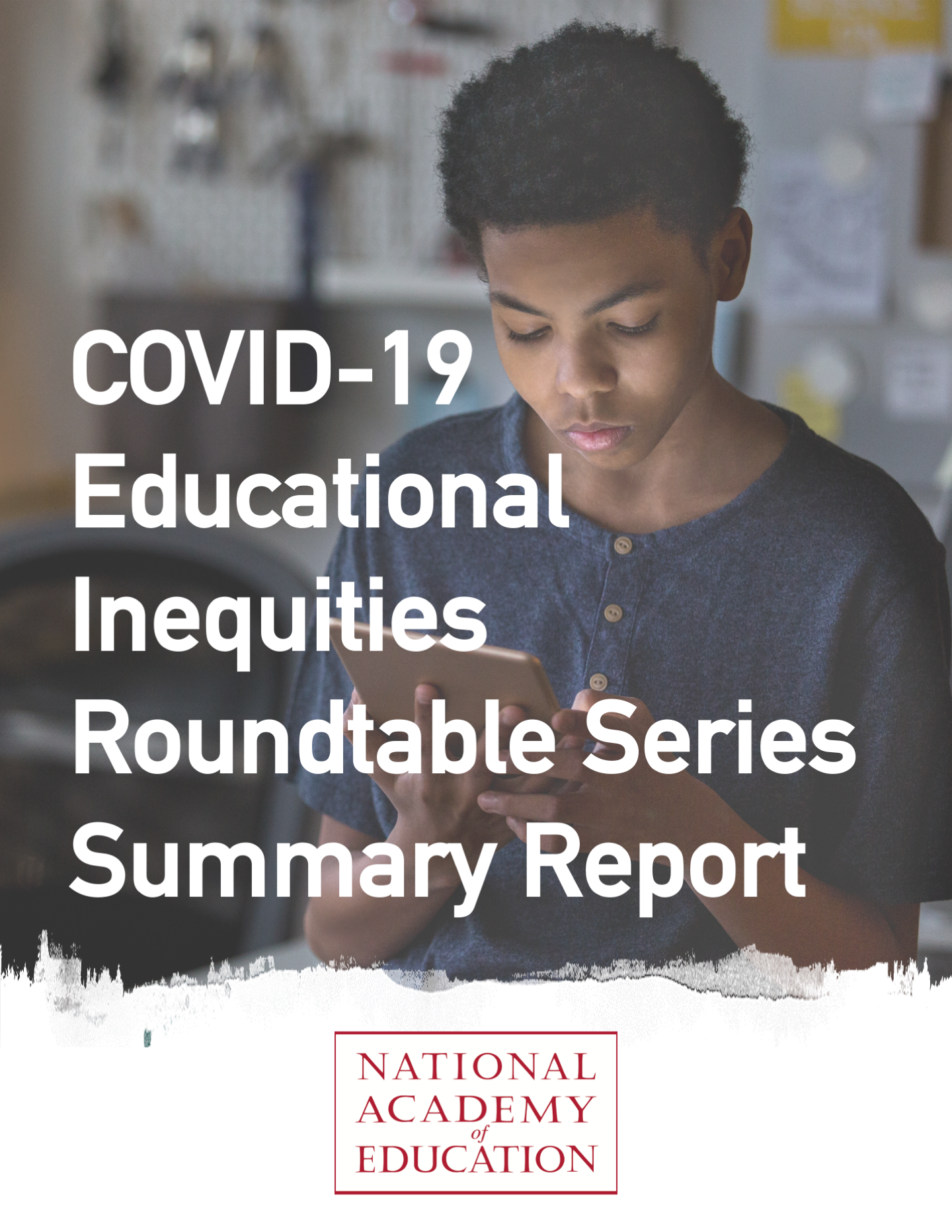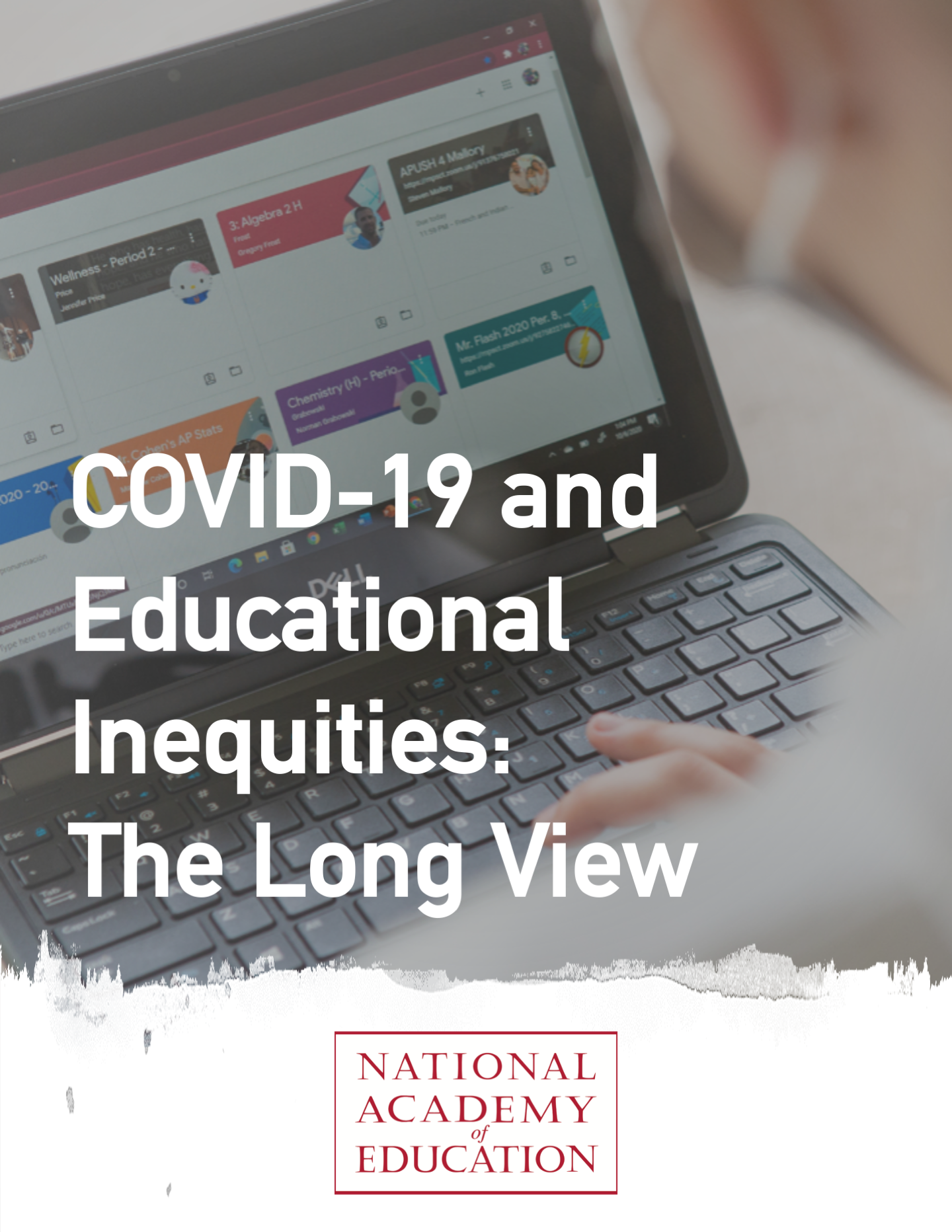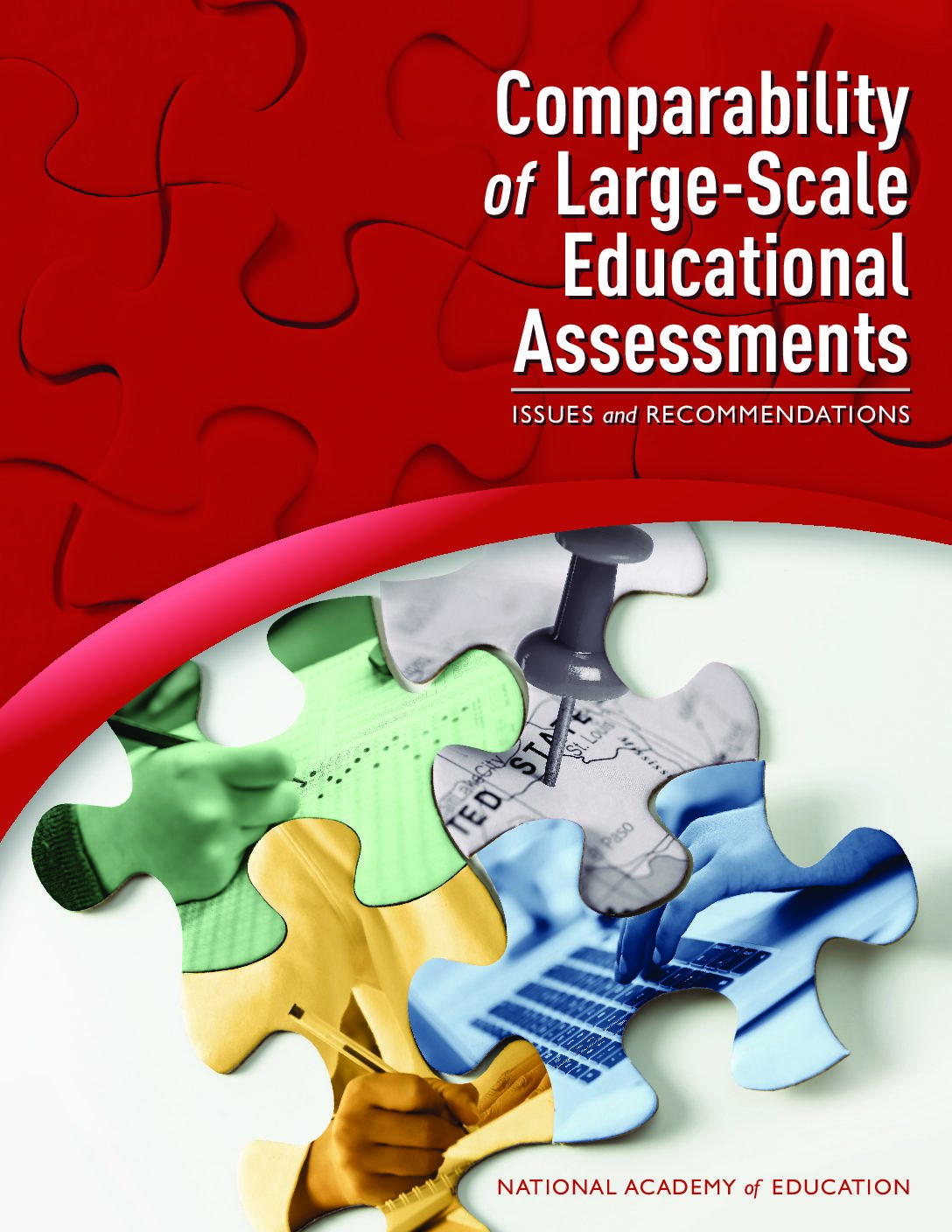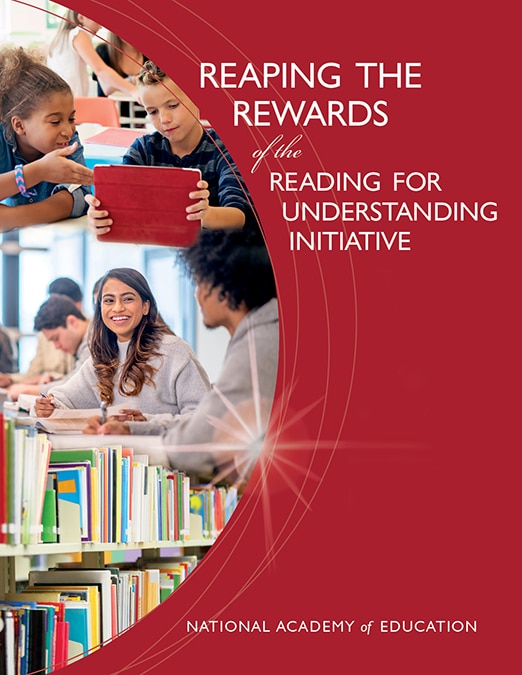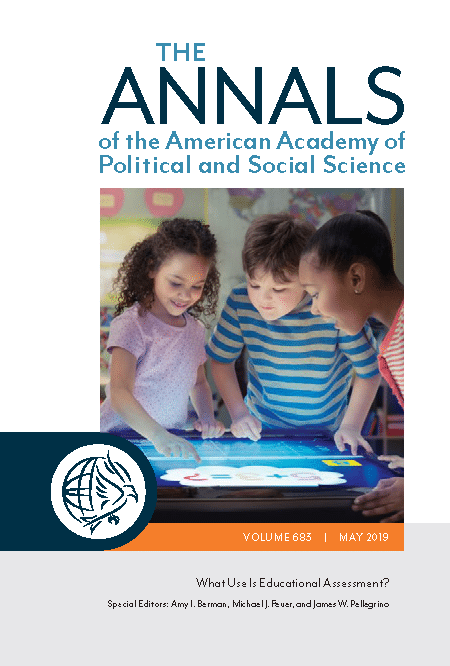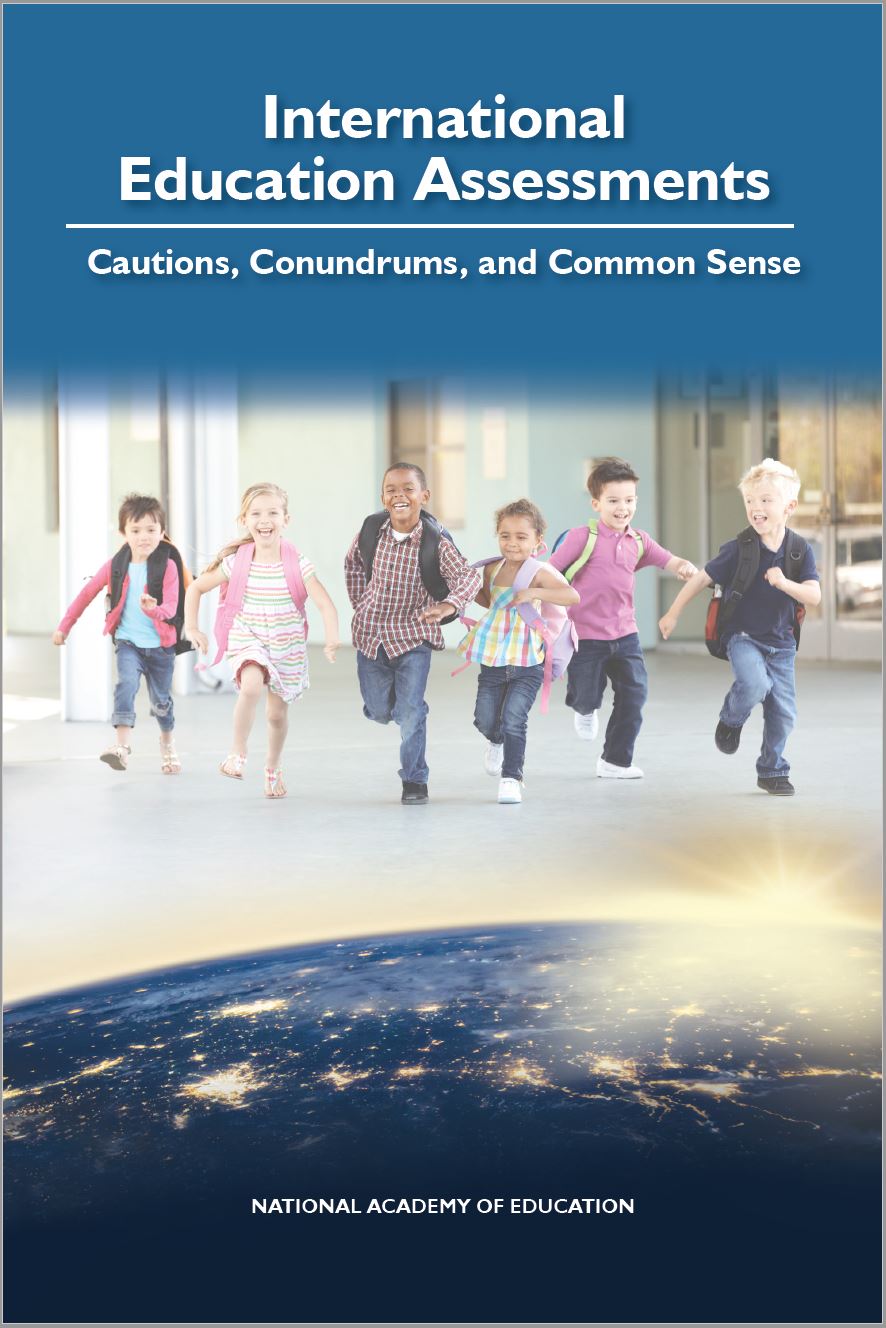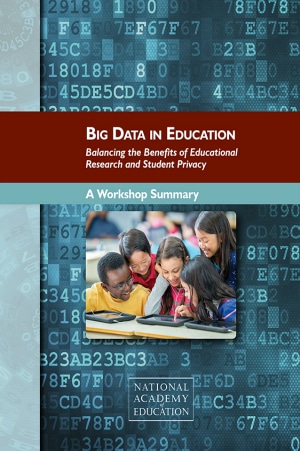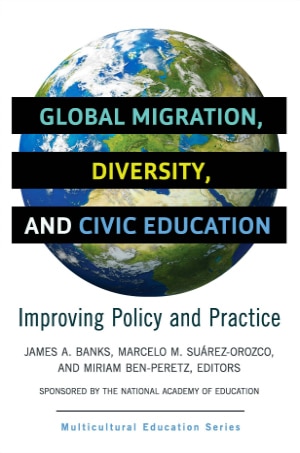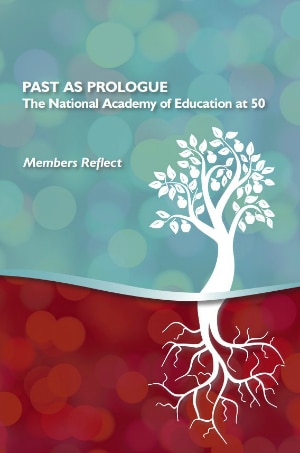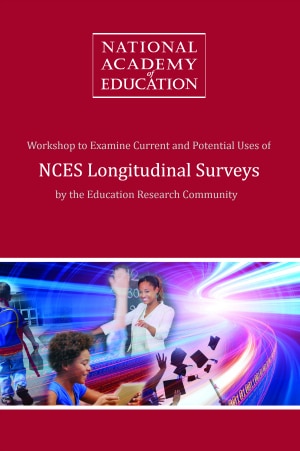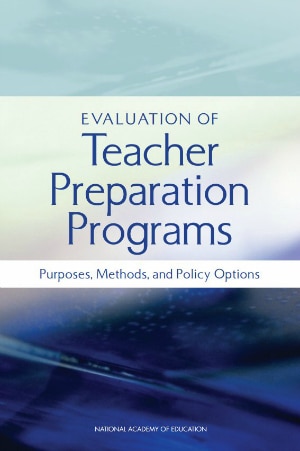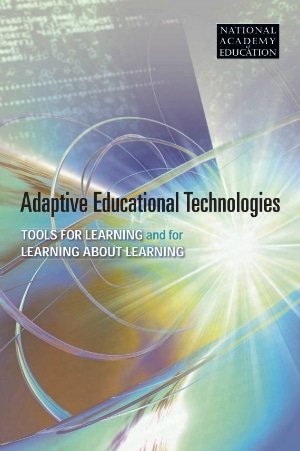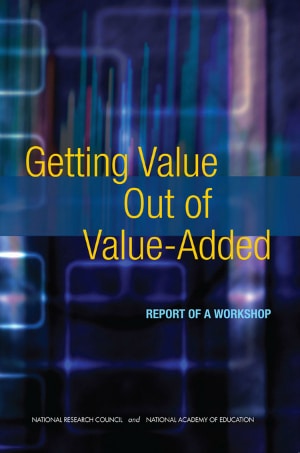RESEARCH AT THE ACADEMY
The National Academy of Education is dedicated to advancing high quality research to improve education policy and practice. The Research Advisory Committee (RAC), charged with setting the research agenda for the organization, is instrumental in identifying and developing new research program ideas, and in providing guidance to projects in their early stages of development.
Please contact Amy Berman for research initiative inquiries.
Current Initiatives
 Use of Generative AI in Assessment
Use of Generative AI in Assessment
Guided by the goals of creating and supporting assessments that can enhance learning for all students, this project aims to engage a broad spectrum of stakeholders in a community-wide effort to design a structured, collaborative roadmap report that will guide the ethically responsible and effective use of generative AI in learning assessments.
 Implications for Education of an Integrative Synthesis of Research on Human Learning and Development
Implications for Education of an Integrative Synthesis of Research on Human Learning and Development
This project aims to foster a deeper understanding of the complex, dynamic processes of human learning and development. It seeks to synthesize cross-disciplinary research, create an interdisciplinary community of practice, and develop multimedia tools to engage diverse audiences. Through these efforts, this initiative highlights the embeddedness of learning and development in the ecologies of the lives of children, youth, their families and communities.
 Educator Support Initiative: Evidence-Based Research for Equitable Learning Environments
Educator Support Initiative: Evidence-Based Research for Equitable Learning Environments
The goal of this initiative is to provide evidence-based guidance to educators and policy leaders for delivering effective learning experiences that fully engage the cognitive, social-emotional, and cultural strengths and resources of all students. The Equity Assistance Center-South (EAC-South) at the Southern Education Foundation (SEF) offers technical assistance and training, upon request, to address educational inequities related to race, sex, national origin, and religion, promoting equitable educational opportunities.
 Evaluating and Improving Teacher Preparation Programs
Evaluating and Improving Teacher Preparation Programs
Through this NAEd project, an interdisciplinary committee highlights the critical context surrounding teacher education and provides research-informed recommendations for evaluating and improving both teacher preparation programs and the larger educational and policy contexts in which these programs are situated.
 Educating for Civic Reasoning and Discourse
Educating for Civic Reasoning and Discourse
Understanding the critical importance of equipping students with the knowledge, skills, and dispositions as future problem-solvers, this NAEd initiative aims to improve students’ learning in civic reasoning and discourse by ensuring that the pedagogy, curriculum, and learning environments that they experience are informed by the best available evidence. Based on a 2021 NAEd report, the NAEd, with important practitioner partners in the field, is developing discipline-specific teacher resources to help schools and districts undertake the recommendations and insights from the NAEd report and related efforts to enhance students’ civic capacities.
 Reimagining Balanced Assessment Systems
Reimagining Balanced Assessment Systems
The NAEd recently released a volume reimagining balanced assessments and providing guidance to state and local educational agencies, as well as schools and teachers, regarding how to: (1) foster and maintain a culture of productive assessment use to improve ambitious and equitable teaching and learning at the classroom level; (2) design policy, professional learning, and other local systems necessary to implement balanced assessment systems; and (3) implement processes to use aggregate data to continually improve the assessment system itself to better serve all students, especially those most disenfranchised. This work was funded by Smarter Balanced/University of California Santa Cruz.
![]() Addressing Educational Inequities in the Wake of the COVID-19 Pandemic
Addressing Educational Inequities in the Wake of the COVID-19 Pandemic
The Academy received a two-year grant from the William T. Grant Foundation to sustain and advance the NAEd’s work and commitment to addressing the educational inequities resulting from and exacerbated by the COVID-19 pandemic. Guided by an interdisciplinary committee of NAEd scholars and policy leaders, this project will provide promising intervention strategies for improving student well-being and learning outcomes for disproportionately affected historically marginalized populations.
This builds on the successful NAEd project, COVID-19 and Educational Inequities, which began in May 2020 and provided needed research-based evidence on a specific set of policy and practice challenges in areas including student well-being, reading, mathematics, assessment, and institutional change.
Recent Initiatives
 COVID-19 and Educational Inequities
COVID-19 and Educational Inequities
This project brought together scholars, policy leaders, and educators to address the fundamental educational challenge of our time — how do we address educational inequities in the face of the COVID-19 emergency, a challenge made even more urgent given the convergence of the pandemic with a national reckoning over racial injustice, climate change, and a significant economic recession.
 Study on Comparability of Large-Scale Educational Assessments
Study on Comparability of Large-Scale Educational Assessments
This NAEd volume provides guidance to key stakeholders on how to accurately report and interpret comparability assertions concerning large-scale educational assessments as well as how to ensure greater comparability by paying close attention to key aspects of assessment design, content, and procedures. The goal of the volume is to provide guidance to relevant state-level educational assessment and accountability decision makers, leaders, and coordinators; consortia members; technical advisors; vendors; and the educational measurement community regarding how much and what types of variation in assessment content and procedures can be allowed, while still maintaining comparability across jurisdictions and student populations. At the same time, the larger takeaways from this volume will hopefully provide guidance to policy makers using assessment data to enact legislation and regulations and to district- and school-level leadership to determine resource allocations, and also provide greater contextual understanding for those in the media using test scores to make comparability determinations.
 Reaping the Rewards of the IES Reading for Understanding (RfU) Initiative
Reaping the Rewards of the IES Reading for Understanding (RfU) Initiative
This NAEd report synthesizes findings from scholarship conducted over the past decade as part of a large-scale federal investment by the U.S. Institute of Education Sciences (IES) to improve reading comprehension of U.S. students. To support this undertaking, IES launched the Reading for Understanding Initiative, which invested approximately $120 million in grant funding to six research teams charged with focusing on improving reading comprehension for students in pre-K through grade 12. This initiative responded to concern that children’s improvement in reading comprehension had leveled off over the previous few decades, coupled with the observation that research on reading comprehension had sufficiently matured to warrant a major investment in leveraging that research to improve student performance.
Research Advisory Committee Members
- Vivian Gadsden (Co-Chair)
University of Pennsylvania - Roy Pea (Co-Chair)
Stanford University - Alfredo Artiles
Stanford University - Eva Baker
University of California, Los Angeles - Deborah Loewenberg Ball
University of Michigan - Megan Bang
Northwestern University - Marilyn Cochran-Smith
Boston College - Frederick Erickson
University of California, Los Angeles - Michael Feuer
The George Washington University - Louis Gomez
University of California, Los Angeles - Kris Gutiérrez
University of California, Berkeley - Larry Hedges
Northwestern University - Nancy Hornberger
University of Pennsylvania - Susanna Loeb
Brown University - Barbara Rogoff
University of California, Santa Cruz - Stanton Wortham
Boston College - Amy Berman (ex officio)
National Academy of Education - Dian Dong (ex officio)
National Academy of Education - Carol D. Lee (ex officio)
Northwestern University - Heidi Schweingruber (ex officio)
National Academy of Sciences DBASSE - Gregory White (ex officio)
National Academy of Education

